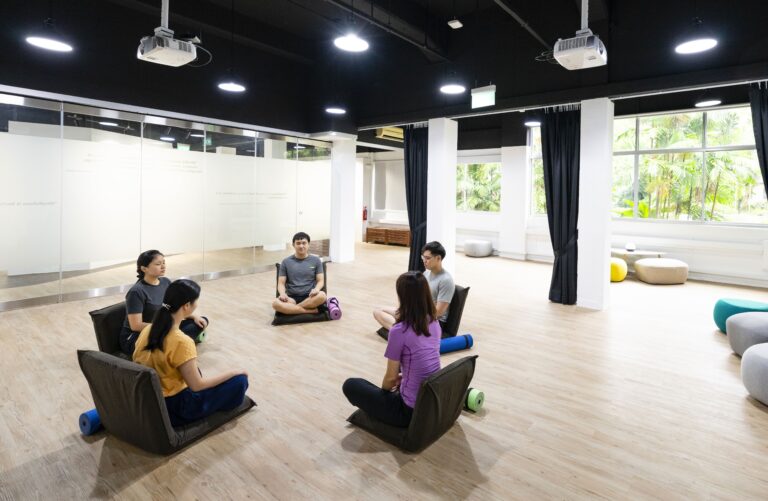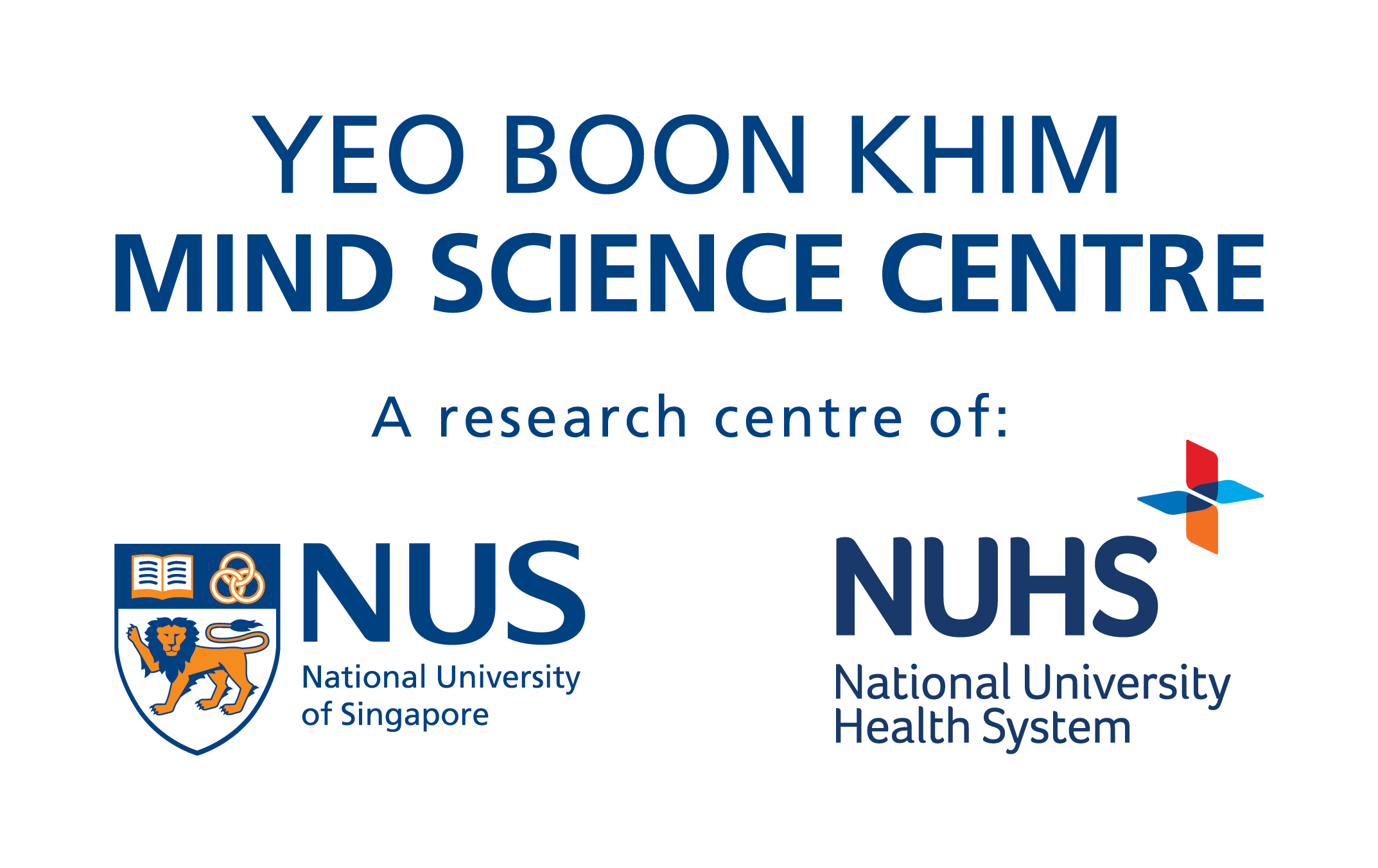In Conversation
Training the MIND: A different kind of GYM
Published on 24 July 2025

You wouldn’t think twice about hitting the weights to keep your body in shape, but did you know your mind could use a workout too? Just as muscles grow stronger with regular exercise, our mental fitness strengthens when we learn to notice the ebb and flow of thoughts, emotions, and sensations without slipping into automatic, sometimes destructive, habits. By cultivating gentle, non-judgemental awareness, such as pausing before reacting or observing rather than judging, we empower ourselves to make more conscious choices in every moment.
Tucked within Alexandra Hospital’s D.S. Lee Foundation Mind Art Experiential Lab (MAELab), MindGym is a dedicated space for evidence-based mindfulness training and practice. Designed to support mental well-being and resilience, it offers a suite of mindfulness programmes. Here, two of our lead trainers – Dr Virginia Lien and Adj Assoc Prof Mabel Yap – share how two mindfulness-based programmes, Mindfulness-Based Cognitive Therapy (MBCT) and Mindfulness-Based Cognitive Therapy for Life (MBCT-L), have benefited them personally.

Meet Our Trainers

Dr Virginia Lien
Medical Doctor, Psychotherapist and Mindfulness Teacher
Director, The Mindful Compassion Project
“MBCT was originally designed for patients with recurrent depression,” explains Dr Lien. “Successful trials indicate that teaching people how their minds work—being mindful of low mood, body responses and automatic negative thoughts—can help them choose more helpful ways of coping, and is as effective as antidepressants in preventing relapse.”
She highlights MBCT’s focus on cognitive reactivity, which refers to the way our minds respond to stress through rumination, rigidity, and negative thought patterns that aggravate suffering. Adapted from the Mindfulness-Based Stress Reduction (MBSR) programme for chronic pain, MBCT brings together breathwork, body awareness, mindful movement, and thought observation to build resilience.
Many assume mindfulness means long, silent meditation, but Dr Lien reminds us that it can begin with small, simple steps.
“We teach ultrashort practices such as three mindful breaths, the STOP technique, a gratitude pause, mindful walking or simply savouring a drink that busy healthcare professionals can fit into any schedule.”

Adj Assoc Prof Mabel Yap
Medical Doctor and Public Health Specialist
Ministry of Health, Singapore and Duke-NUS Medical School
“MBCT-L has profoundly impacted my life by equipping me with tools to maintain balance and mitigate stress,” says Adj Assoc Prof Yap. “Understanding that stress arises from my perception of situations, rather than the events themselves, has enabled me to respond more effectively.”
Professionally, these skills were invaluable during the pandemic, helping her remain present and focused for her team. Personally, mindfulness supported her through profound loss:
“During a personal bereavement, mindfulness helped me stay grounded and present, allowing me to process my grief and show compassion towards myself and others.”
Her advice to beginners is both practical and profound:
